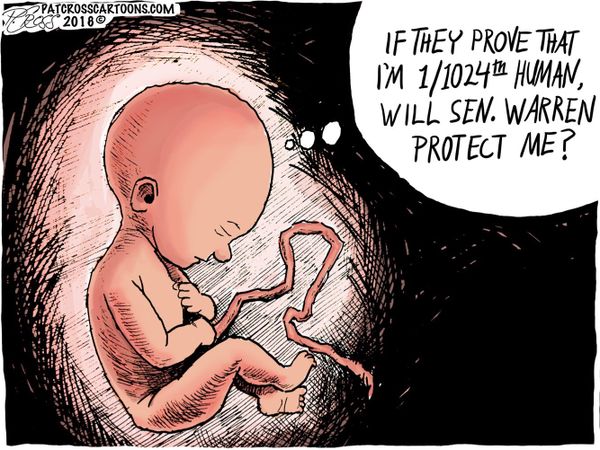PERSONAL UPDATE: 9/11 Note my latest entry in the JOURNAL section on the right side of this page.
(1 Tim. 2:1-3)
*For wisdom for the president as he delivers remarks at both events today.
*For guidance for the president in all areas of foreign policy.
*For strength for the many immigration and border patrol agents working to secure the U.S. border.
*For wisdom for trade negotiators as they continue to work on a deal to balance trade between the U.S. and China, with deadline now not till December.
*For wisdom for the president and secretary of state as they work on the next steps in negotiations with North Korea.
*For guidance for the president as he continues to tackle complex issues such as border security and immigration.
*For unity for Congressional leaders as they work to resolve the current issues with immigration law.
*For wisdom for President Trump, Cabinet members and advisers determining the best course of action for the United States in Venezuela.
*For guidance for President Trump as he works on a variety of issues, that God’s will would be accomplished through him.\
---------------------------------------
Tragically, last week we all learned that Jarrid Wilson, associate pastor of Harvest Christian Fellowship Church in Riverside, California, had committed suicide. He was a husband and the father of two. He was only 30 years old. Jarrid had founded a ministry called “Anthem of Hope,” in order to minister to people with depression and suicidal ideations. He ended his life on the same day he officiated the funeral of a Christian who had ended hers.
About a year ago, Andrew Stoecklin, another 30-year-old pastor from California, also committed suicide. Like Wilson, he shared openly about his own battles with depression and anxiety.
About a year before that, Wisconsin Pastor Bill Lenz took his life after bouts of depression and anxiety. Like Wilson, he had ministered extensively to many with depression and suicidal ideation, and had created a suicide-prevention ministry.
In the fog of questions and grief, one thing is clear: Neither Christians nor Christian pastors are immune from the suicide epidemic that’s sweeping our country.
My friend Ed Stetzer wrote, in response to Wilson’s death, that while all suicides are shocking, stories of pastors and other Christian leaders who take their own lives “cause questions to arise,” questions that are unique. Among them must be, why is there still such a lack of awareness about the emotional, psychological, and spiritual struggles pastors face? And also, where can pastors turn for help?
It’s no surprise that so many pastors and ministry leaders are reluctant to admit that they are struggling with sin, with depression, or with their family. They especially struggle to be vulnerable with those who “hold the power of the purse” in their lives and can shape the future of their careers. And, as Stetzer pointed out in his article, there is an evangelical reluctance to look outside Christian circles for assistance, especially when it comes to mental health issues. It’s as if by doing so, we’d be admitting that the Christian faith is somehow inadequate.
It isn’t, of course. The Christian faith not only explains who we are, it explains why truth and health can be found by those who carefully study God’s world. As Ed put it, “God does not fix it all…Yet.” Or as Wilson himself wrote on Twitter the day he died, “Loving Jesus doesn’t always cure suicidal thoughts,” and “Loving Jesus doesn’t always cure depression,” or “PTSD and anxiety, for that matter.”
Wilson ended his life on the eve of World Suicide Prevention Day, a day intended to draw attention to the enormity of the crisis in the U.S. and around the world. In connection with World Suicide Day, and in order to help us all answer the one question we should be asking right now—what can we do?—my friend Jeremiah Johnston has written an article explaining how Christians can make a difference when it comes to suicide and depression. It starts with knowing more about suicide and its causes.
Among the most important thing to know is that “Mental illness is not a character flaw; it’s a disease.” Similarly, it’s “not a spiritual problem” in the sense it can be fixed with just “more faith” or “more church.” Mental illness is a treatable medical condition.
There remains too much stigma and shame in Christian circles when it comes to mental illness. That has to stop. Mental illness is treatable, but only if it’s treated. By supporting those around us, the church can help make that more likely. So let’s help. Just as Christians in the Roman Empire ran towards epidemics while everyone else was running away from them, we have a chance today to do the same.
If you who are suffering from depression or suicidal thoughts: Please, seek help. There are folks who love you, care for you, and want to help. If you need help immediately, call the National Suicide Prevention Lifeline: 1-800-273-TALK. That’s 1-800-273-TALK.
[italics and colored emphasis mine]
RESOURCE - "A Light in the Darkness: How We Can All Help Prevent Suicides" - Jeremiah Johnston, BreakPoint, September 12, 2019; http://www.breakpoint.org/2019/09/a-light-in-the-darkness-how-we-can-all-help-prevent-suicides/
PRAISE GOD for the continuing recent successes against
Monthly Focus | INDIA - For the first time, India entered the top 10 on the 2019 World Watch List. Research indicates that in 2018, more than 12,000 attacks on Christians were reported (many go unreported). This month, we invite you to pray with our fellow Indian believers.
*Names changed to protect identities













No comments:
Post a Comment